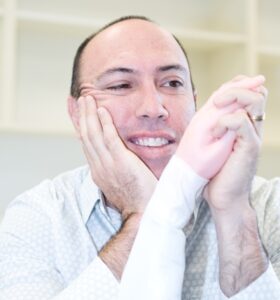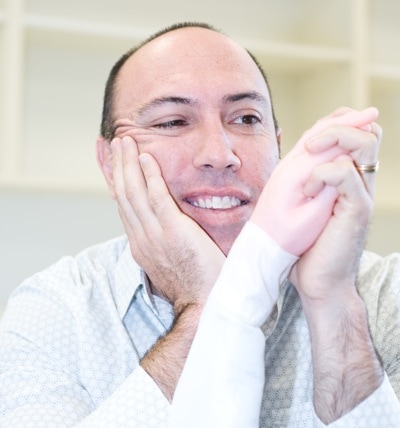I have a painful shoulder. It has been hurting since mid-December. I can recall no incident – just woke up one morning with severe pain on pretty much any movement. Now, I am not looking for diagnoses, nor in fact sympathy. What I would like to do instead is to run you through some interesting reflections I have had.
i) I wake up in the night a lot. I have tried very hard to decipher whether I had any pain before I woke. I conclude here that I have had pain the nanosecond I was awake, but not a nanosecond before. Is it possible to have pain in your sleep? Sleep is an altered state of consciousness, rather than a state of unconsciousness, but even then I reckon it is rare to have pain in your sleep and I would predict that the pain one might have in one’s sleep is rather more vague than the pain we have awake.
ii) Not sleeping as well as normal becomes a real drag after a while. What is more, it has become more of a drag now that I have realised that it has been 2.5 months of broken sleep – that is, the knowing seems to increase the impact. On some mornings I find myself saying, even if just to myself, that I had a bad night’s sleep when actually, I didn’t. I am going to bed earlier and rising later than normal so the actual hours of sleep are probably not that different to usual. Does whatever is driving my pain reduce the restfulness of my sleep without necessarily waking me?
iii) Having a persistent pain state makes one a good subject for one’s own experiments and I have had some fun trying out assessments and treatments. Not much, I must say, seems to have helped.
iv) I had an ultrasound six weeks ago and a couple of injections. I wanted the ultrasound doctor fellow to do a double blind placebo controlled injection of the bursa, but he said they did not have the resources for that. I said well how do you know if you have modulated the pain by an effect on nociception. He said ‘you just do’. So, injection of anaesthetic into the bursa did nothing. I then had an intra-articular injection (I always thought it was along those lines) and I got immediate relief. The consensus in the room was that if i got immediate relief with the intraarticular and nothing with the bursa, it can’t be placebo. Anaesthetic and steroids – a few days I will be right as rain. Well my pain returned a few days later. Sounds pretty placebo to me – could have untangled that with double-blind injections.
v) I had an x-ray. I am not sure why really when we were always heading for an MRI. Still, my response to the x-ray was really interesting. In the course of my work, I have had reason to do a few catastrophising scales, fear avoidance beliefs questionnaires, somatic perceptions questionnaires etc etc, and I always score pretty low. However, I can honestly say that when I looked at the x-ray I was looking for cancer. I knew my pain was worse at night. It strikes me as remarkable that it was only then that I realised that I was not totally convinced that it was not something uber sinister. For the record, it is not.
vi) I had an MRI. Now, my shoulder is pretty mangled, BUT the interesting thing is this – my pain has increased a couple of points on a 10 point scale since I read the report that outlined, in detail, all the bits that are damaged. How amazing is that? Here I am – studying all this stuff – wise to a large extent to the power of descending modulation and upregulation of protective systems, and the knowledge of how much is damaged in there has absolutely, positively, increased my pain. I know for sure that I could not have done all that damage, in fact almost any of it, on the day before my pain started. So I really have no idea how much that damage is related to my pain. Even still – my pain is now officially brutal. I am both very annoyed at this development and very impressed in all that happens inside us without us making it happen. I shall now embark on the tricky process of deciphering what are the main contributors to my shoulder pain and how I should best address them. Here comes a journey.
About Lorimer Moseley
 Lorimer is NHMRC Senior Research Fellow with twenty years clinical experience working with people in pain. After spending some time as a Nuffield Medical Research Fellow at Oxford University he returned to Australia in 2009 to take up an NHMRC Senior Research Fellowship at Neuroscience Research Australia (NeuRA). In 2011, he was appointed Professor of Clinical Neurosciences & the Inaugural Chair in Physiotherapy at the University of South Australia, Adelaide. He runs the Body in Mind research groups. He is the only Clinical Scientist to have knocked over a water tank tower in Outback Australia.
Lorimer is NHMRC Senior Research Fellow with twenty years clinical experience working with people in pain. After spending some time as a Nuffield Medical Research Fellow at Oxford University he returned to Australia in 2009 to take up an NHMRC Senior Research Fellowship at Neuroscience Research Australia (NeuRA). In 2011, he was appointed Professor of Clinical Neurosciences & the Inaugural Chair in Physiotherapy at the University of South Australia, Adelaide. He runs the Body in Mind research groups. He is the only Clinical Scientist to have knocked over a water tank tower in Outback Australia.
Link to Lorimer’s published research here. Downloadable PDFs here.



